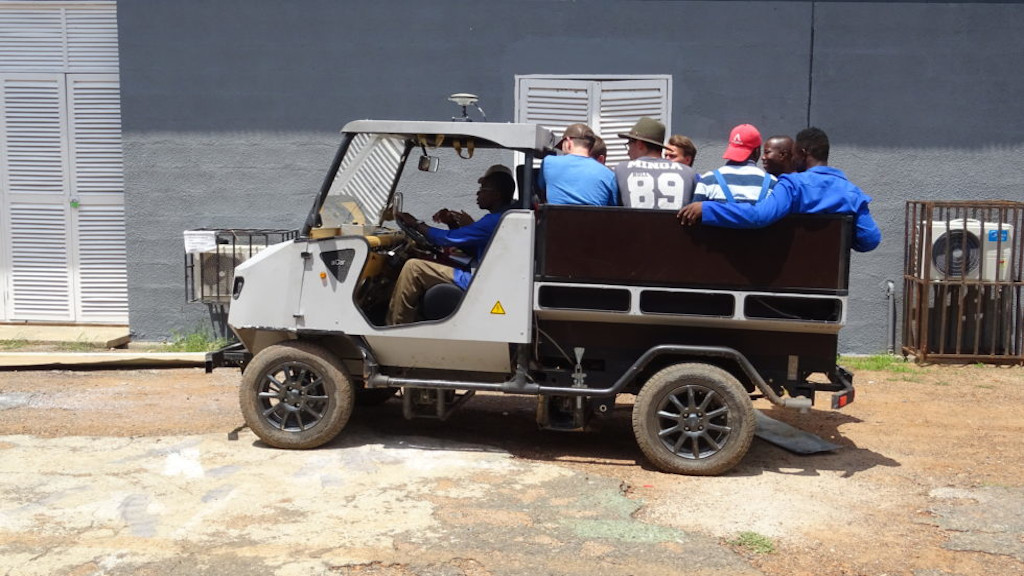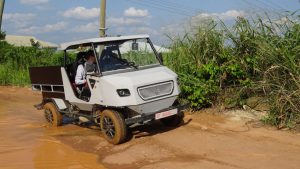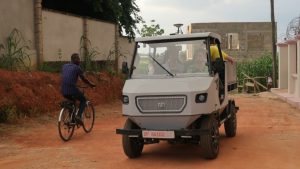An electric truck for Africa? With the aCar, the TU Munich has developed a transporter that can even cope on African tracks. The minimalist among the electric vehicles will go into series production in Bavaria in 2019 and will also be offered in Germany.
The automobile is a matter of course for Germans: driving beverage crates home, gondola to work on the motorway, jetting off to the Mediterranean on holiday. It’s different in Africa: very few people there have a car, and goods are often transported by cart and bicycle. Electric cars play no role at all in Africa.
But for years now, the Technical University of Munich (TUM) has been working on a vehicle concept that allows goods to be transported even in poor countries, but in an absolutely environmentally friendly way. “It’s a vehicle that people there can afford financially, it’s all-terrain capable and can transport large trucks,” explains Prof. Markus Lienkamp, head of the Department of Automotive Engineering.
Electric truck built in African microfactory
A spin-off has been created around the TUM research team: Evum Motors. The company will produce a small series of around 1,000 electric cars in a model factory in Bayerbach, Lower Bavaria, starting at the end of 2019. “Before the car can be produced in Africa, we first have to get the technical processes under control,” says project manager Sascha Koberstedt. “Then we can train people from Africa here, who in turn can pass on their knowledge locally.
The developers had already put the car through its paces for the first time in Africa in 2017 and presented it to a wider audience at the IAA. In 2020, the first microfactory in Africa is scheduled to open, offering the aCar for less than 10,000 euros. “I can put the parts of the car in the garage and you can put it together in a week,” emphasises Koberstedt.
By 2025, 110,500 cars will then be produced annually at eleven production locations worldwide. From December 2019, the minimalist e-vehicle will also be sweeping German roads. However, the price is more than twice as high, at around 22,000 euros. The reason: higher production costs and technical upgrades for road approval.
70 km/h top speed, 200 km range
The basis of the 1.5 m wide, 3.7 m long, 2.10 m high and 800 kg light vehicle is a frame made of profiled sheets, which are also used in truck construction. Although the aCar has no luxury on board, it lacks power steering, ABS, radio and air conditioning. But technically the electric vehicle is reliable. For example, it is fitted with an electric drive train from Bosch. “An electric drive is not only more environmentally friendly, but also technically the better solution, since it requires little maintenance and can develop its full torque directly when starting up,” explains project manager Martin Šoltés.
Two electric motors with 11 hp each accelerate the four-wheel-drive vehicle to a top speed of around 70 km/h. The battery has a capacity of 20 kWh and enables a range of up to 200 km. It takes seven hours to recharge at a household socket.
 afric-Invest
afric-Invest






